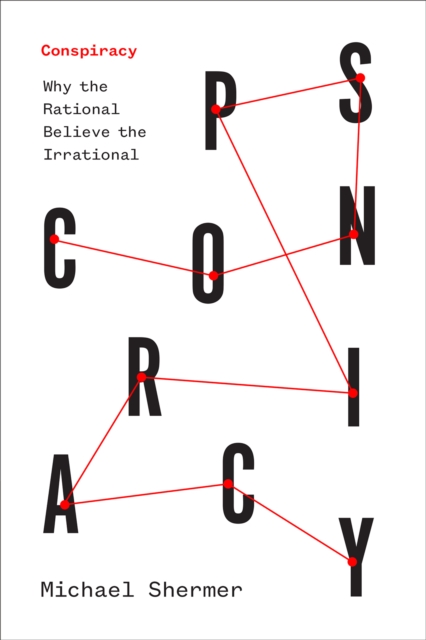
Conspiracy : Why the Rational Believe the Irrational Hardback
by Michael Shermer
Hardback
Description
"A well-written and essential tool for those navigating today's complicated geopolitical landscape."—Library Journal Best-selling author Michael Shermer presents an overarching theory of conspiracy theories—who believes them and why, which ones are real, and what we should do about them. Nothing happens by accident, everything is connected, and there are no coincidences: that is the essence of conspiratorial thinking.
Long a fringe part of the American political landscape, conspiracy theories are now mainstream: 147 members of Congress voted in favor of objections to the 2020 presidential election based on an unproven theory about a rigged electoral process promoted by the mysterious group QAnon.
But this is only the latest example in a long history of ideas that include the satanic panics of the 1980s, the New World Order and Vatican conspiracy theories, fears about fluoridated water, speculations about President John F.
Kennedy's assassination, and the notions that the Sandy Hook massacre was a false-flag operation and 9/11 was an inside job.
In Conspiracy, Michael Shermer presents an overarching review of conspiracy theories—who believes them and why, which ones are real, and what we should do about them.
Trust in conspiracy theories, he writes, cuts across gender, age, race, income, education level, occupational status—and even political affiliation.
One reason that people believe these conspiracies, Shermer argues, is that enough of them are real that we should be constructively conspiratorial: elections have been rigged (LBJ's 1948 Senate race); medical professionals have intentionally harmed patients in their care (Tuskegee); your government does lie to you (Watergate, Iran-Contra, and Afghanistan); and, tragically, some adults do conspire to sexually abuse children.
But Shermer reveals that other factors are also in play: anxiety and a sense of loss of control play a role in conspiratorial cognition patterns, as do certain personality traits.
This engaging book will be an important read for anyone concerned about the future direction of American politics, as well as anyone who's watched friends or family fall into patterns of conspiratorial thinking.
Information
-
Only a few left - usually despatched within 24 hours
- Format:Hardback
- Pages:376 pages, 4 Illustrations, black and white; 40 Illustrations, black and white
- Publisher:Johns Hopkins University Press
- Publication Date:25/10/2022
- Category:
- ISBN:9781421444451
Other Formats
- Paperback / softback from £16.50
£25.00
£24.79
Information
-
Only a few left - usually despatched within 24 hours
- Format:Hardback
- Pages:376 pages, 4 Illustrations, black and white; 40 Illustrations, black and white
- Publisher:Johns Hopkins University Press
- Publication Date:25/10/2022
- Category:
- ISBN:9781421444451






